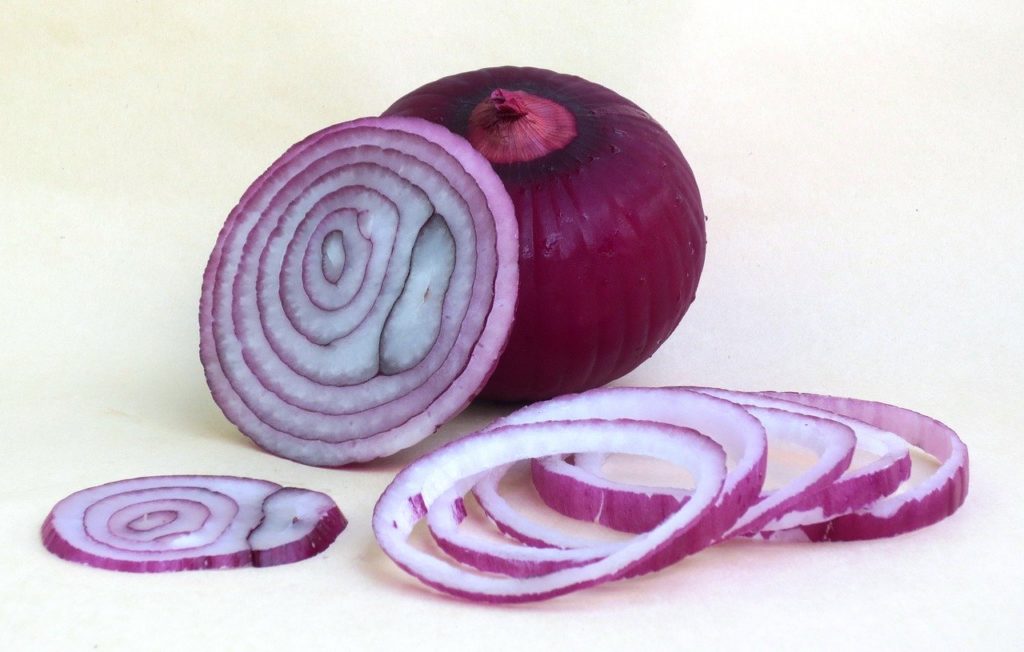All fields are required
Posted in Our Blog,Outbreaks & Recalls,Salmonella on July 31, 2020

Over the past few weeks the CDC has been keeping a close eye on a Salmonella outbreak that has hit Montana and multiple other states, and has infected over 200 individuals. While this is not the first time an outbreak of this size has caused this kind of turmoil, it is the first time we have had to battle an outbreak during a pandemic. Talk about a double-whammy. Here’s what we know about this Montana Red Onions Salmonella Outbreak.
While we have a few minutes today, I want us to discuss what is happening, look at the details, and focus on one of the states with the largest amount of cases.
In mid-July, the CDC released an announcement that they were watching a local Salmonella outbreak. As the days flew by, more and more states revealed cases. As of the writing of this post, here are the numbers:
The affected states include: AK (6), AZ (14), CA (49), CO (10), FL (3), ID (5), IL (10), IN (2), IA (15), KS (1), KY (1), ME (4), MD (1), MI (23), MN (10), MO (6), MT (33), NE (5), NV (5), NY (4), NC (3), ND (5), OH (7), OR (71), PA (2), SC (1), SD (11), TN (5), TX (1), UT (61), VA (4), WA (2), WI (5), WY (11)
While the earliest outbreak goes back almost three weeks, it is important to remember that symptoms can take 2 to 4 weeks to present themselves. This is also important wan we discuss numbers as they could be much higher.
Signs and symptoms of Salmonella illness, on the surface, may appear to look like the flu. However, they can lead to worse problems if left alone. Here are the most common signs you could have Salmonella poisoning:
While it is recommended to seek medical help if you think you have Salmonella, there are a few finer points to watch out for. If any of these apply to you, contact a doctor immediately:
If you have symptoms of a Salmonella infection, report your illness to your local health department and talk to a healthcare provider. If you receive a call from your health department, please answer their questions about your illness and the foods you ate before you got sick. This information is vital for public health officials to identify the source of this outbreak and to take steps to prevent additional illnesses.”
While this investigation continues, the CDC along with Canadian Officials spoke to what they believe is the culprit: red onions. Traceback information has led to the possibility of United States grown red onions. Information is still coming together so food recalls are always a possibility in the future.
When it comes to prevention, one practice rises to the top: washing your hands. I find myself missing this step at times when I cook but I cannot stress how important this is. Here are the 5 Simple Steps:
According to a Canadian Public Health Notice: Individuals are asked to check their homes for red onions, including whole, sliced, or chopped, as well as prepared foods that contain red onions as an ingredient, such as premade salads, sandwiches, wraps, or dips.
If you have red onions at home:
One question about Salmonella I have been asked about a lot from family is what it is and how do you get it. I am happy to talk about food safety as it has become a passion of mine. I start by referring them to a few simple ideas and then tell them to do more research on their own. From the CDC, here are those simple ideas:
If I could give one piece of advice to you, it would be to take the time to see if you have any red onions in your home. Then, if you do, get rid of them and wash every surface you can.
Our mission is to help families who have been harmed by contaminated food or water. When corporations cause Salmonella food poisoning outbreaks, we use the law to hold them accountable. The Lange Law Firm is the only law firm in the nation solely focused on helping families in food poisoning lawsuits and contaminated water lawsuits.
As a US law firm, The Lange Law Firm is well positioned to pursue those responsible in the United States for growing, producing, and selling Salmonella contaminated red onions.
If you got Salmonella food poisoning in the Montana Red Onions Salmonella Outbreak and are interested in making a legal claim for compensation, we can help. Our Salmonella lawyer can help you pursue compensation for your Salmonella food poisoning. Call us for a free no obligation legal consultation at (833) 330-3663 or send us an e-mail here.
By: Dwight Spencer